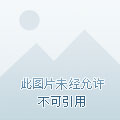World Kidney Day is celebrated every year on the second Thursday of March.
Due to the increasing incidence of chronic kidney disease in the world and the lack of public awareness of the prevention and treatment of kidney disease, the International Society of Nephrology and the International Kidney Foundation jointly set up "World Kidney Day".

There is a type of pain called kidney stone
As the name suggests, kidney stones refer to stones formed inside the kidneys.
This disease tends to occur in men, causing symptoms of low back pain, irritability, bloating, nausea, vomiting, and abnormal urination.
And the symptoms of waist pain depend on the size and location of the stone, if the stone movement is small, the pain is lighter, but if the movement is large, not only has a feeling of pain, but also prone to renal edema.
This kind of pain, like an invisible hand constantly twisting the kidneys, starting from one side of the waist, the pain is more and more intense like a tide, sometimes slow, sometimes protruding, and then radiating from the waist to the ipsilateral lower abdomen and thigh roots.
At this time, people are not only in pain and unable to fidget, sweating profusely, but even their body temperature is rising, and hematuria appears...
Don't want kidney stones, don't do these behaviors in daily life
First, the diet is not healthy
Studies have found that one of the factors that induce kidney stones includes unhealthy diet, high salt, high sugar, and high fat diet, all of which are the "culprits".
Because the sodium ion content in the salt is relatively large, after entering the human body, in the process of metabolism and calcium are interconnected, if the sodium ions are excreted, a part of the calcium ions will also leave, and the increase in calcium ions in the urine will increase the risk of kidney stones.
Why does a high-sugar diet induce kidney stones?
High-sugar foods will affect the absorption of calcium and magnesium, and the content of calcium ions, oxalic acid and uric acid will increase accordingly after ingestion, thus providing the possibility of kidney stones.
A high-fat diet reduces the amount of calcium that can be conjugated in the intestines and promotes oxalate absorption, which also accelerates the formation of kidney stones.
Second, drink too little water
The amount of water consumed is proportional to the amount of urine, and if the amount of water is not enough, the amount of urine excreted will also be reduced. In this case, elevated urine concentrations are more likely to precipitate crystals and generate stones.
Not only that, people who often use drinks to replace water will also increase the probability of kidney stones, there are more sugars and additives in drinks, and regular drinking will increase the burden of detoxification and metabolism on the kidneys.
Third, the amount of exercise is small
When the human body sits for a long time or often lies on the sofa, the amount of activity is reduced, which not only leads to slower blood circulation and reduced resistance.
Too little exercise, calcium in the bones is more likely to fall off, over time, the accumulation of calcium that falls off is more and more, after blood absorption, it will increase the content of calcium in the blood, causing calcium problems in the urine, and kidney stones will also occur in the case of accumulation over time.
Fourth, the intake of oxalic acid is too large
Clinical data show that about 60% of patients with kidney stones have the disease, consume too much oxalic acid, eat more animal proteins in their daily lives, and produce oxalic acid in the process of digestion and absorption.
Then oxalic acid is combined with calcium, calcium oxalate stones will be formed, oxalic acid will be concentrated and excreted in the kidneys, and the concentration of oxalic acid in the kidneys will be relatively high, which is easy to form stones.
Does too much calcium supplement increase the risk of stones?
Many people will not understand, since the main component of the stone contains calcium, calcium supplementation or drinking water minerals too much, will increase the risk of stones?
In fact, calcium supplementation not only does not cause stones, but on the contrary, an appropriate amount of calcium supplementation can also prevent the occurrence of stones.
Calcium in the diet will be divided into two ways after entering the human body, one way is absorbed from the intestine into the blood, and the other way calcium will remain in the intestine and excreted with feces.
Naturally, this calcium, which has not yet been absorbed, binds to the oxalic acid component of the food, which in turn reduces the absorption of oxalic acid.
At the same time, the appropriate amount of calcium supplementation can also help the human body stimulate blood calcium self-regulation, reduce the dispersion of calcium, and ensure that the original calcium can stay in the bones.
At the same time, if you have recently and inexplicably have waist pain, frequent urination, urgency or even blood in the urine, please go to the hospital quickly, which may be a signal of the arrival of kidney stones.
bibliography:
[1] Wang Jiao, He Lihua, Luo Gongtang. Research status on the effects of drinking water on the pathogenesis of kidney stones. Journal of Environmental Hygiene, 2013, 3(3): 261-263, 267.
[2] Wu Zaide, Wu Zhaohan. Surgery[M]. People's Medical Publishing House, 2008.